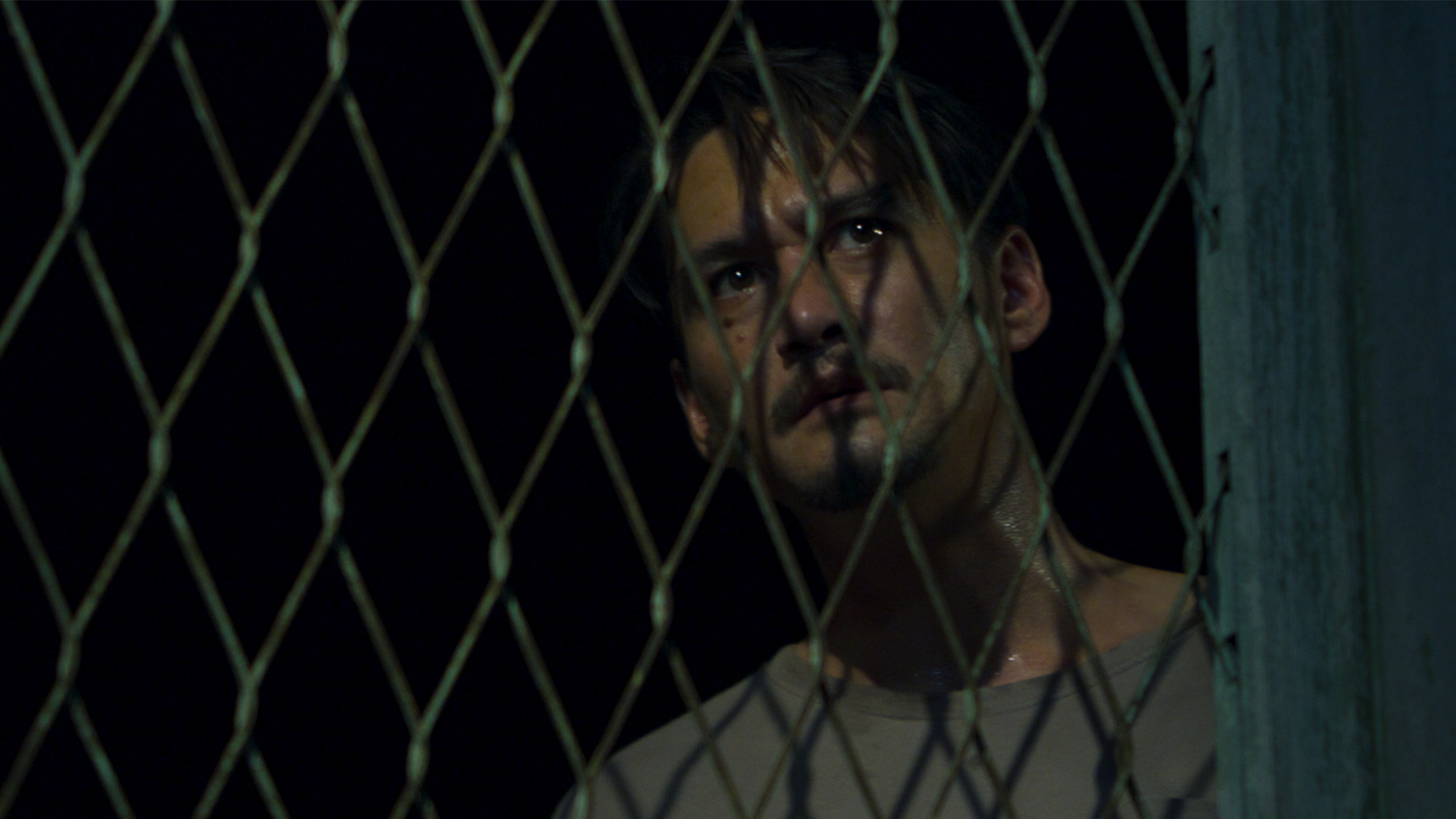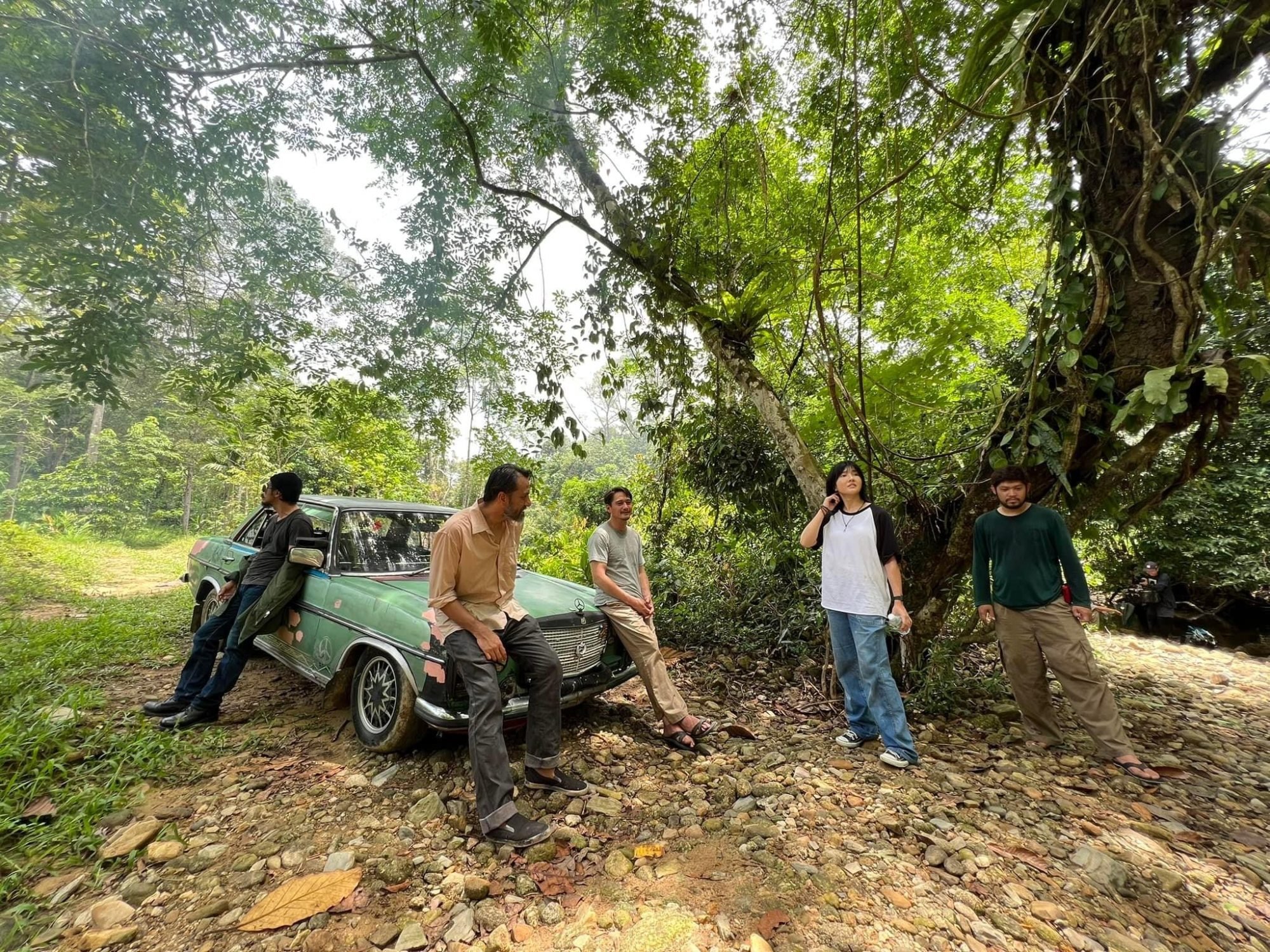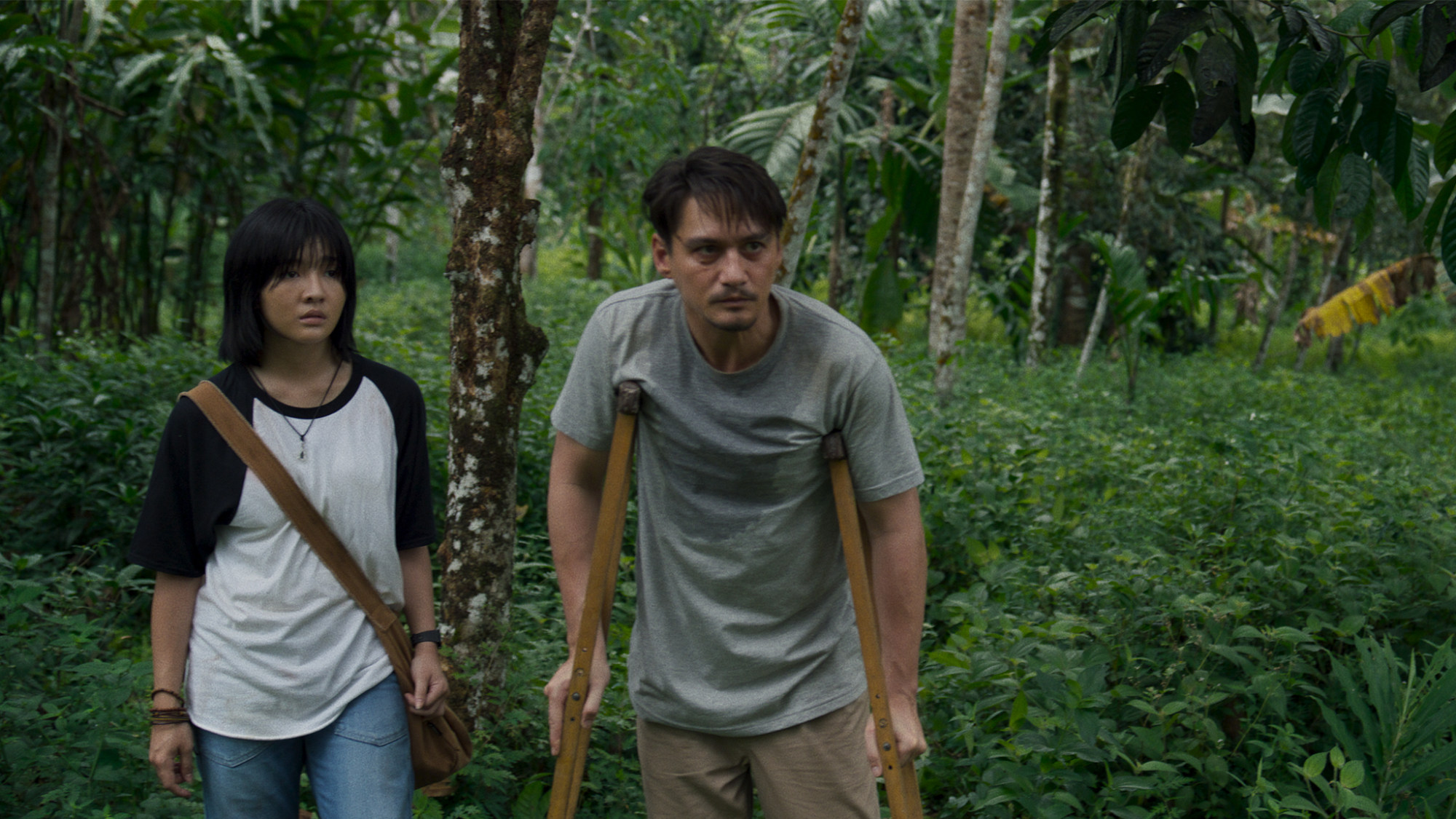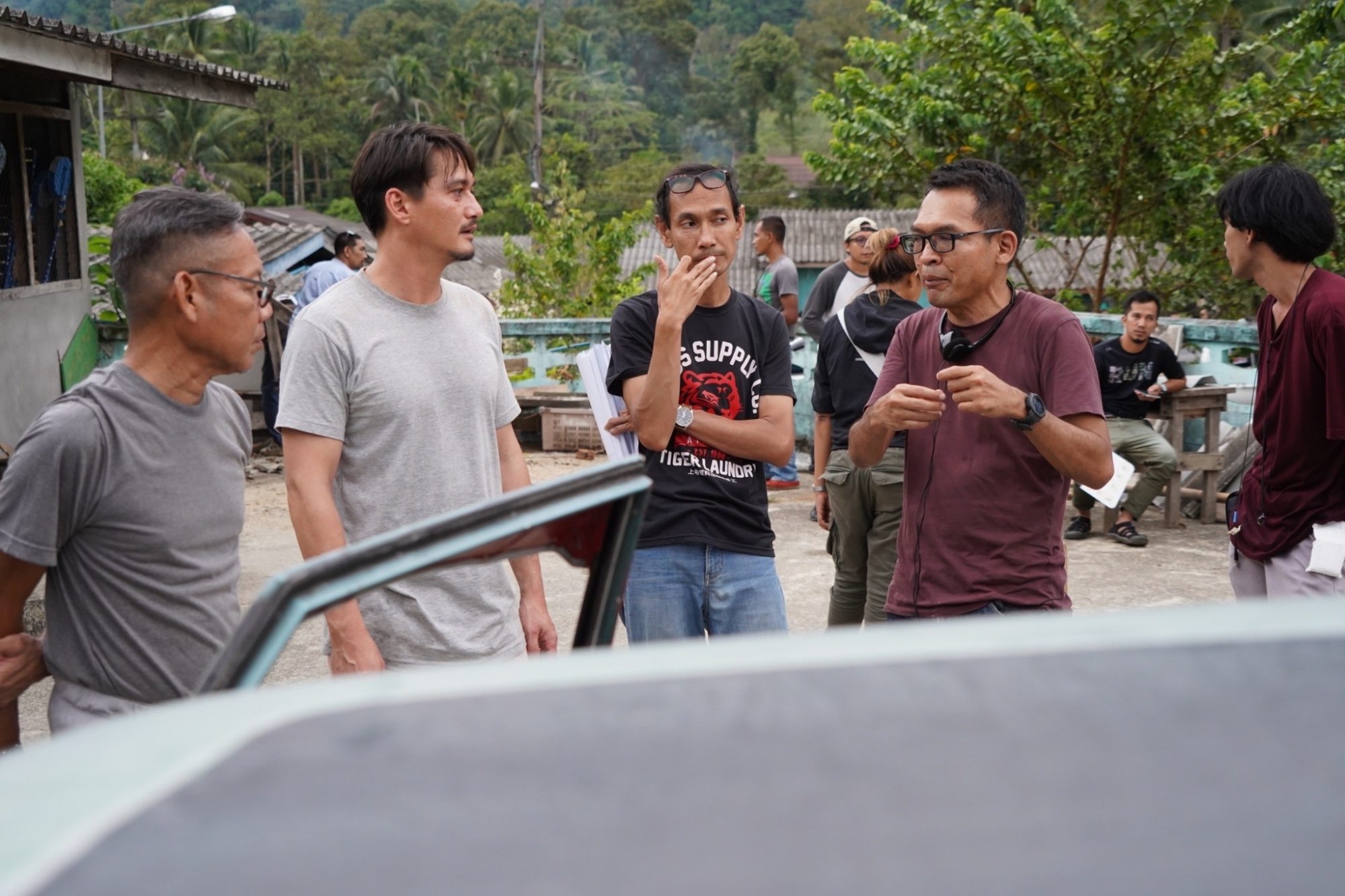The provinces have long maintained a dangerous reputation because of the separatist unrest that has affected the area since 1948. The unrest escalated into acts of terrorism in the 2000s, including car bombs, in both the south and the Thai capital, Bangkok.
Panu and Kong, who are both Thai Muslims and grew up in the capital – making them “different from Muslims in other parts of Thailand”, Panu says – have collaborated many times since 2006, producing documentaries including In Between (2006), The Convert (2008), Baby Arabia (2010), and Gaddafi (2014).
The 12 best Asian films of 2023: Concrete Utopia, Godzilla Minus One and more
The 12 best Asian films of 2023: Concrete Utopia, Godzilla Minus One and more
They see their work as “a means to delve into our unique identity, challenging the prevalent external media portrayal that often oversimplifies the multifaceted nature of Muslims”, Panu says.
They chose the horror genre for their debut feature for two reasons: they wanted to make the first Islamic horror film in Thailand, and Panu is a fan of the genre – especially of the “haunted house” style.
“My favourite titles include The Conjuring and The Omen,” he says.

In The Cursed Land, Mit (played by Ananda Everingham, who also starred in one of Thailand’s most famous horror films, 2004’s Shutter) is a troubled Thai man suffering from post-traumatic stress disorder after the death of his wife.
His company forces him to move with his teenage daughter, May (Jennis Oprasert, a Thai idol-group member and actress), and their dog into an old house in a nong chok – a Muslim village – outside Bangkok.
“When the father and daughter in the film move into their rental house on the outskirts of Bangkok, they are unaware of the historical scar left by the founding of the capital in the 19th century,” Panu says.

He explains that during that time, Malay captives from the south – once an independent territory with a Malay and Islamic culture before being annexed by Siam (the old name for Thailand) – were rounded up and transported to work as labourers in Bangkok.
“This marked a long history of assimilation and struggle,” he says.
Heem, the villagers say, lived in Thailand’s deep south and is known for having dabbled with Islamic black magic.
Eternal affair: Tony Leung and Andy Lau on their new movie, The Goldfinger
Eternal affair: Tony Leung and Andy Lau on their new movie, The Goldfinger
By focusing on a mixed suburban setting and playing with the vernacular beliefs of a Thai Muslim community, The Cursed Land lays the country’s social and political tensions bare, using the haunted-house horror milieu to distil all these converging yet contrasting elements for the first time on screen.
“In Thailand, there is a classic urban story about non-Muslim families moving into their new houses built on lands that used to be Muslim graveyards,” Panu says.
“Most of them always experience supernatural events in the houses, and what is most interesting is they start seeking help from Buddhist monks who fail to solve the problem. They eventually end up pledging [the help of] Islamic scholars or Imam to suppress unexplained spirits.
“These kinds of stories reflect how Thai people – both Muslim and non-Muslim – live in coexistence,” he adds.

Narathiwat province rubs borders with Malaysia’s most Islamic and conservative state, Kelantan, and is largely unexplored in Thai cinema.
“We wanted to set part of the story in a deep south province that borders Malaysia to play around with the idea of topographical and spiritual borders. Narathiwat has the great raw vibe of a border town, surrounded by a swathe of dense forest. The ‘borders’ as we define them get blurry here,” Panu says.
Actor Bront, who is of Pakistani-Malay-Thai descent, praises Panu and Kong for their success in showing a region rarely given attention in popular media.
“I think Panu and Kong did a great job in trying to give a glimpse into the situation in the south – their sentiment, the perception and even the location,” he says.
“We actually travelled down south to film some of the scenes there, [and the pair] were really trying to encapsulate the essence of the location and people into the film.”

The Cursed Land is Bront’s first film in Thailand and the first time he has worked in the Thai language he grew up using with his parents in Malaysia. He brushed up his skills when living in Bangkok between 1996 and 1999 and defines them as “passable”.
“During our script reading and workshop, I was afraid that I would ruin the project, but the whole team were really patient and understanding,” Bront says.
‘Searing sense of vengeance’: Bae Doona on her Rebel Moon character Nemesis
‘Searing sense of vengeance’: Bae Doona on her Rebel Moon character Nemesis
“Bront’s selection for our project was deliberate from the script’s inception,” Panu says. “We sculpted the character of Heem based on his persona, and his fluent command of the Thai language adds an extra layer of authenticity to the portrayal.”
The director believes that by collaborating and maintaining cultural authenticity, the film celebrates the unique narratives that each country brings to the “collective Southeast Asian cinematic landscape”.
After its European debut at Rotterdam, the film will participate in more festivals and is set for a Thai cinema release in May.

Panu and Kong are keen to give Thai viewers a cultural challenge.
“We want to explore how Thai audiences, who are familiar with the Thai ghost based on Buddhist perceptions, react to the concept of Djinn [a type of spirit in Islam], which is a very different idea from traditional Thai ghosts,” Panu says.
